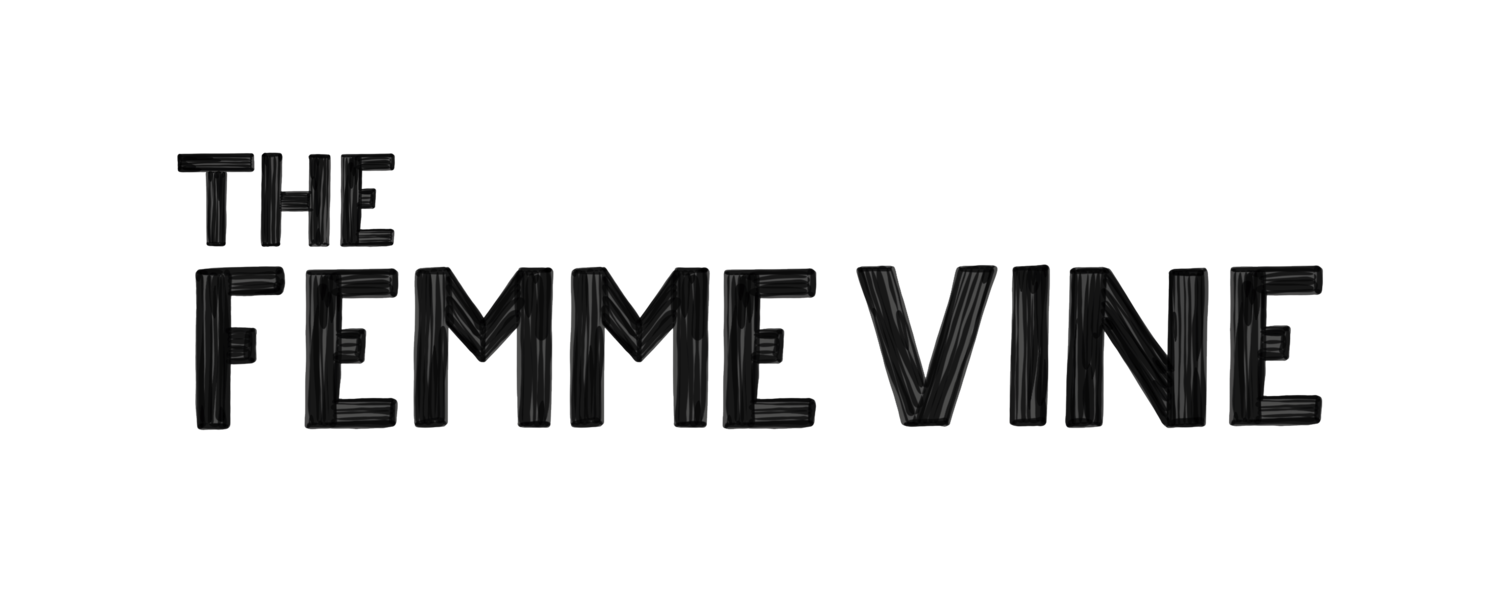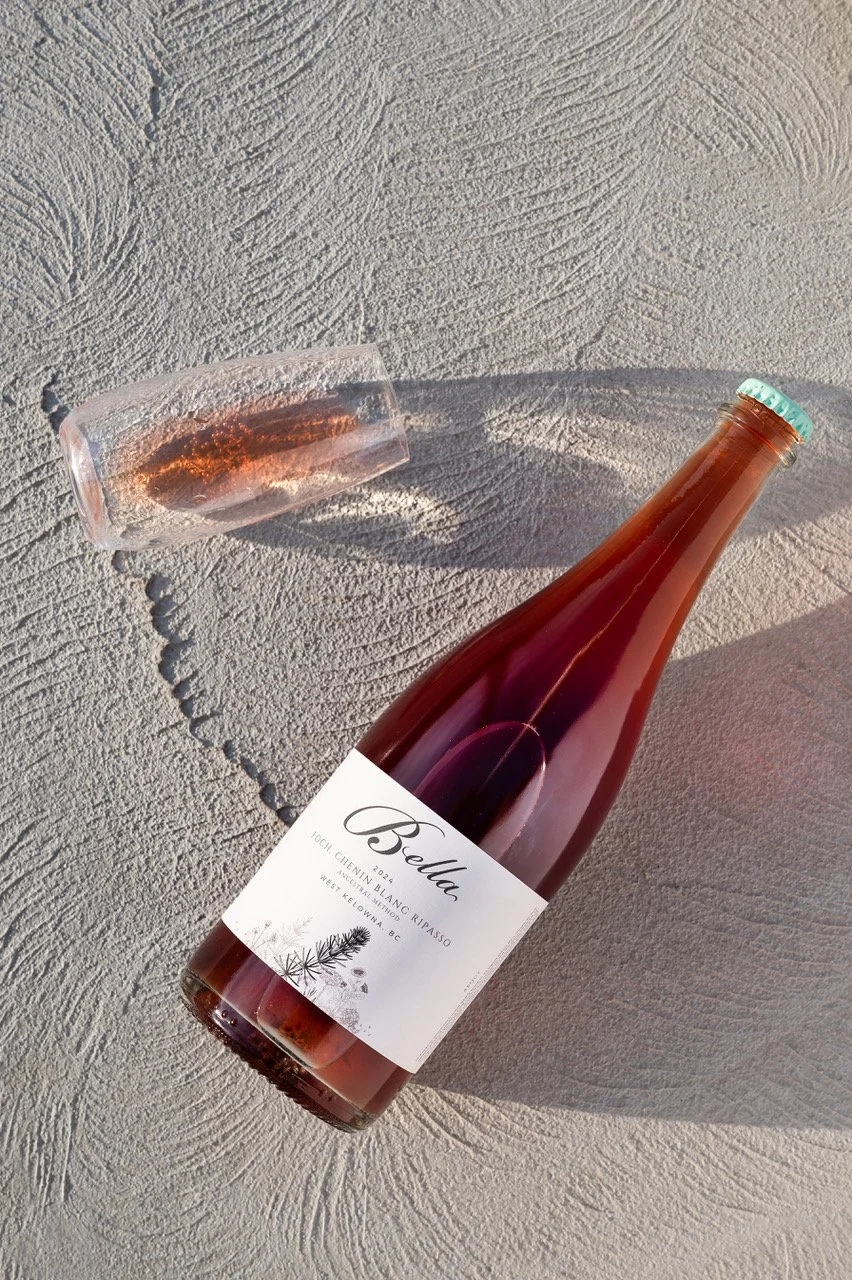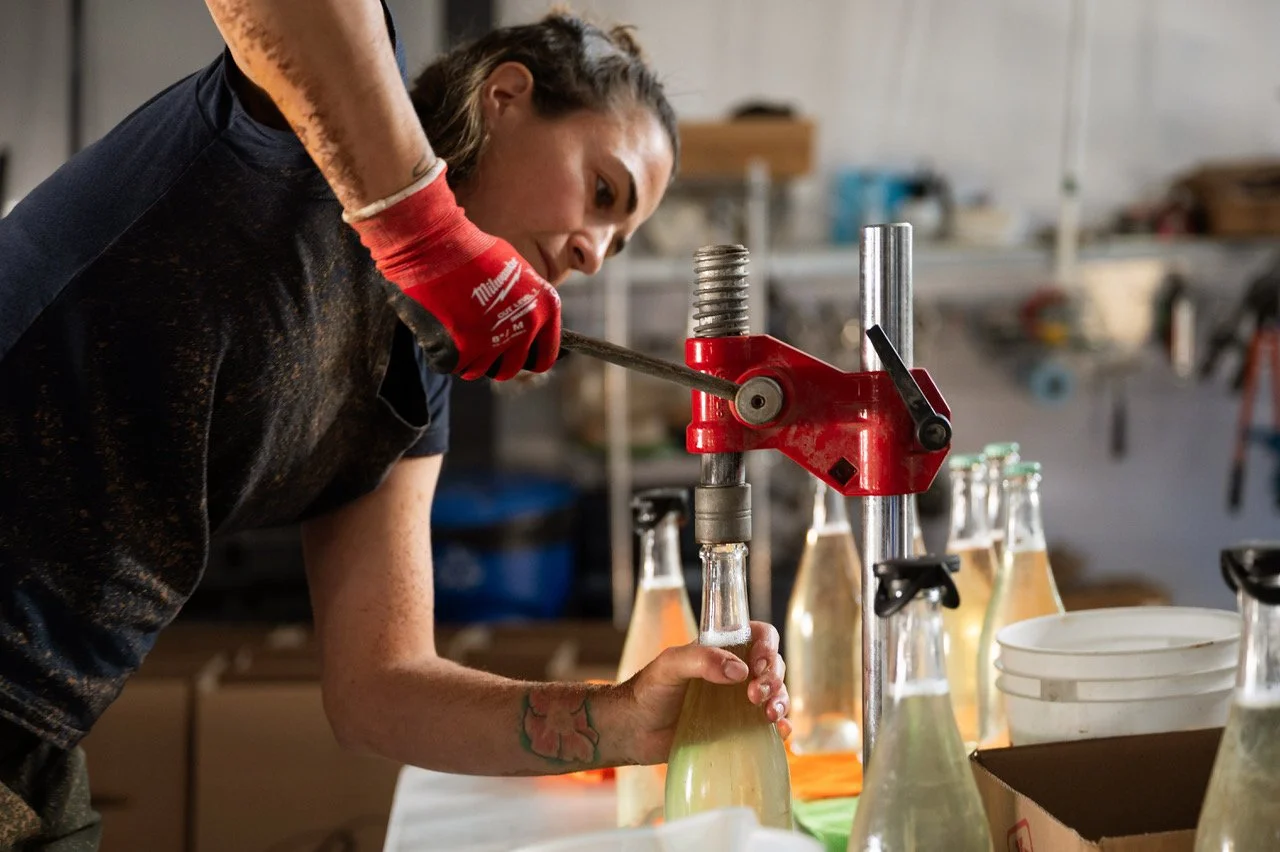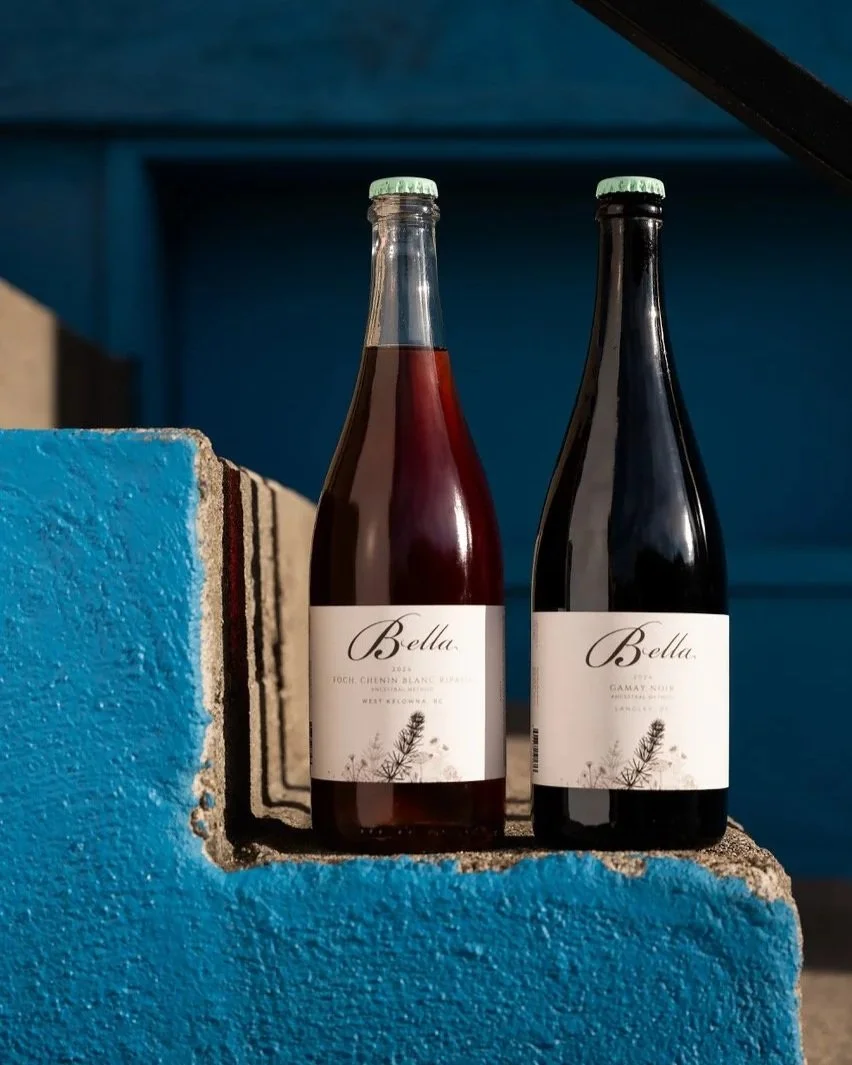Behind the vine
Bree McKeage - Bella Wines & Ursa Major Winery - Keremeos, Similkameen Valley, BC
When do you think you fell in love with wine, enough to make a career of it?
I think that it was more of me falling out of love with my blossoming finance career more than anything. Wine was a backdrop that I knew a lot about, knew how to serve it, knew the basics of how it’s grown and made, etc.
I remember the exact moment my soul was begging for a career change. I was in a boardroom meeting and it was my turn to go over the quarterlies. I just froze. The building melted away, and I felt a spiritual tap on my shoulder that said, "you don’t have to do this." I stood up from the table and told my boss right there that I quit. I was shaking, and I left the office and went straight to the restaurant where I worked part-time. I walked right up to my boss there and demanded he make me the bar supervisor and put me in charge of the wine program. That was it.
Wine was just there, this other thing that I loved and enjoyed, so I figured, "why not?" I began studying, pursuing networking opportunities, and consuming information and bottles as much as possible at that point. That was about ten years ago, starting in restaurants, then on vineyards, then just working the ladder high enough until I could go out on my own and experience the autonomy I’ve always craved.
What story does your wine tell?
At the moment, the wines I make are telling the story about resilience. In climate change, macroeconomic disasters, external personal factors that have profoundly affected Rajen and me, obstacles at every turn, vitriol and malice from outsiders…to have even made the 2024 vintage was a miracle in itself. If I had to give it a motto, I’d take a quote from Rajen to me: “You better saddle up, Pony boi.”.
I think that if you want to pursue something, or you’re infatuated with a goal, you’ll do anything to make it work and resilience and tenacity in this business are key. To overcome so much and still be able to show something beautiful from the struggle is a story we can almost all relate to.
“Wine has shaped regional cuisines around the world and is farmed right beside the ingredients of life.”
- Bree McKeage
What misconceptions about wine do you think people should forget?
I think we need to let go of the idea that there is a “right” way to drink wine, how to pair it, and all of those rules. I've had wine in mason jars, solo cups, plastic camping glasses—you name it. The correct setting and glassware can enhance the experience, but it’s really about enjoying wine right where you are that day. It’s about pleasure and a sweet pause, not stressing over doing it “right.”
That mindset goes back to my time in Italy. About 20 years ago, I was a stablehand for a family in Orte. I would have to get wine from the village where I would bring the family’s jugs, walk up to a window in the town center, and they would fill it with the local indigenous wine. We would drink it in tumblers with almost every meal. It was such an informal, unclinical, uncommercial way of enjoying wine that made me fall in love with how simple it can be.
What great things about wine do you think people should remember?
The simplicity of wine, its root, is that it is food. It has shaped regional cuisines around the world and is farmed right beside the ingredients of life. It’s our highest form of agricultural art, our culture, our differences, yet our similarities. It shouldn’t be something that defines your class or your knowledge; wine, in its most basic form, is a reflection of how we enjoy, how we savor, and how we appreciate perfection. It's a reflection of our humanity - patience, creativity, our connection to the earth, and savoring something earned. We’ve done it for 8,000 years - not to be revered, or collected for wealth, but to just have something tasty and unique.
What is a piece of advice you would give to a woman interested in breaking into the wine world?
Pick your battles and play the game. Realize that as a woman, there is so much less room for error, for mistakes, and little to no forgiveness for stepping beyond your given role. You need to understand how dedicated and great you’ll have to be, often surpassing your male counterparts who are getting preferential treatment. You have to suck it up and grind. It is truly just an industry that is rooted in male-centered egos, and the most dangerous thing you can do as a woman is hurt those egos, too soon. You have to rise above with the quality of your work, and it’s going to be exhausting. It’s about making moves, being selfish, keeping your eye on the prize and striving to be better than you were yesterday. All the time. You can piss people off, but you need to have the skill to back it up.
And, you’ll be paid less, you’ll feel unwelcome, you’ll be talked over - the only way is to beat that game with the best wine you can make, serving a higher cause and community within your industry, and always, always supporting those under you. If you can balance knowledge, education, experience and quality, with compassion, equity, and understanding, you’ll be just fine. But above all? YOU GOTTA WORK.
Where can women find your wine?
We are primarily in BC, and can be found at most liquor stores and on our webshop.
Who is a woman in wine you think everyone should know about?
Jordan Kubeck at Pamplemousse. Jus and her brand St. Katharina. She’s been the game for a while, has overcome a lot, sought her own path and is dedicated to just good, clean farming.



